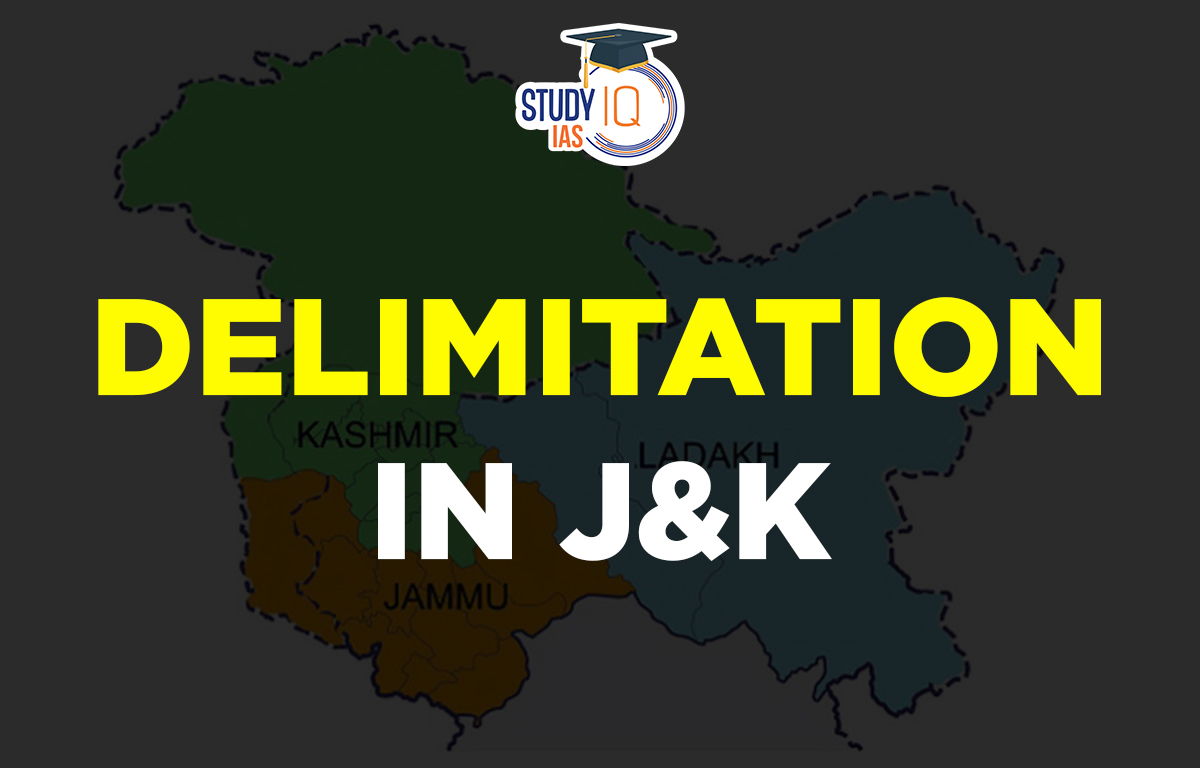Table of Contents
Context: The supreme court has recently upheld the delimitation exercise carried out in the Union Territory of Jammu and Kashmir, dismissing petitions challenging its implementation.
About the Delimitation Exercise in Jammu and Kashmir (J&K)
- Brief background:
- The Jammu and Kashmir Reorganization Act, 2019 provided for reorganization of the State of Jammu and Kashmir by dividing it into two Union Territories namely Jammu and Kashmir (J&K) and Ladakh.
- By virtue of Section 62 of the Reorganization Act, 2019, the Delimitation Act, 2002 was made applicable to the erstwhile State of Jammu and Kashmir.
- Delimitation exercise: On 6 March 2020, a Delimitation Commission was appointed by the Central Government to carry out a delimitation exercise in the Union Territory of J&K.
- Recommendations made by the Delimitation Commission:
- Assembly: The Commission has increased 7 Assembly seats i.e. 6 in Jammu (now 43 seats) and 1 in Kashmir (now 47). It has also made changes in the structure of the existing Assembly seats.
- Lok Sabha: The Commission has redrawn the boundaries of Anantnag and Jammu seats.
- Reservations: The Commission has recommended ‘provision of at least two members from the community of Kashmiri Migrants (Kashmiri Hindus) in the Legislative Assembly’. It has also recommended that Centre should consider giving representation in the J&K Legislative Assembly to the ‘displaced persons from Pakistan-occupied Kashmir, who migrated to Jammu after Partition’. The Commission has reserved nine Assembly seats for Scheduled Tribes.

What is Delimitation?
- Delimitation is the act of redrawing boundaries of Lok Sabha and state Assembly seats to represent changes in population.
- Objectives of Delimitation:
- To provide equal representation to equal segments of a population.
- Fair division of geographical areas so that one political party doesn’t have an advantage over others in an election.
- To follow the principle of “One Vote One Value”.
- Constitutional provisions:
- Article 82: This provides the Parliament with the authority to enact a Delimitation Act after every Census.
- Article 170: This provides for the States to get divided into territorial constituencies as per the Delimitation Act after every Census.
- Who carries out delimitation? Delimitation is carried out by an independent Delimitation Commission, appointed by the Government of India under provisions of the Delimitation Commission Act.
- The process of delimitation:
- After the delimitation commission determining the number and boundaries of constituencies, the draft proposals of the Commission are published for public feedback.
- The Commission also holds public sittings. After hearing the public, it considers objections and suggestions, and carries out changes, if any, in the draft proposal.
- The final order is published in the Gazette of India and the State Gazette concerned and comes into force on a date specified by the President.
- History of delimitations in India:
- In the history of the Indian republic, Delimitation Commissions have been set up four times — 1952, 1963, 1973 and 2002 under the Acts of 1952, 1962, 1972 and 2002.
- There was no delimitation after the 1981, 1991 and 2001 Censuses. However, the 2002 Act did not make any changes in total Lok Sabha seats or their apportionment between various states.
- The 2002 Act also left out a few states including Assam, Arunachal Pradesh, Nagaland and Manipur from the exercise due to “security risks.”
- The central government reconstituted the Delimitation Commission for these four states as well as the union territory of Jammu and Kashmir on 6 March 2020.
- Another notification was issued on 03.03.2021 to amend the first notification to the extent that it deleted the States of Arunachal Pradesh, Assam, Manipur and Nagaland from the purview of the Delimitation Commission.
About the Delimitation Commission
- The Delimitation Commission in India is a high-power body whose orders have the force of law.
- Composition: The Delimitation Commission is appointed by the President of India includes following members:
- Retired Supreme Court judge
- Chief Election Commissioner
- Respective State Election Commissioners
- Functions:
- To determine the number and boundaries of constituencies to make population of all constituencies nearly equal.
- To identify seats reserved for Scheduled Castes and Scheduled Tribes, wherever their population is relatively large.
- In case of difference of opinion among members of the Commission, the will of majority prevails.
- Powers:
- The Constitution mandates that the Commission’s orders are final and cannot be questioned before any court as it would hold up an election indefinitely.
- The copies of its orders are laid before the House of the People and the State Legislative Assembly concerned, but no modifications are permissible therein by them.


 Daily Quiz 17 April 2025
Daily Quiz 17 April 2025
 Nilgiri Biosphere Reserve, Map, Climate,...
Nilgiri Biosphere Reserve, Map, Climate,...
 Complete List of Indian State Animals
Complete List of Indian State Animals





















